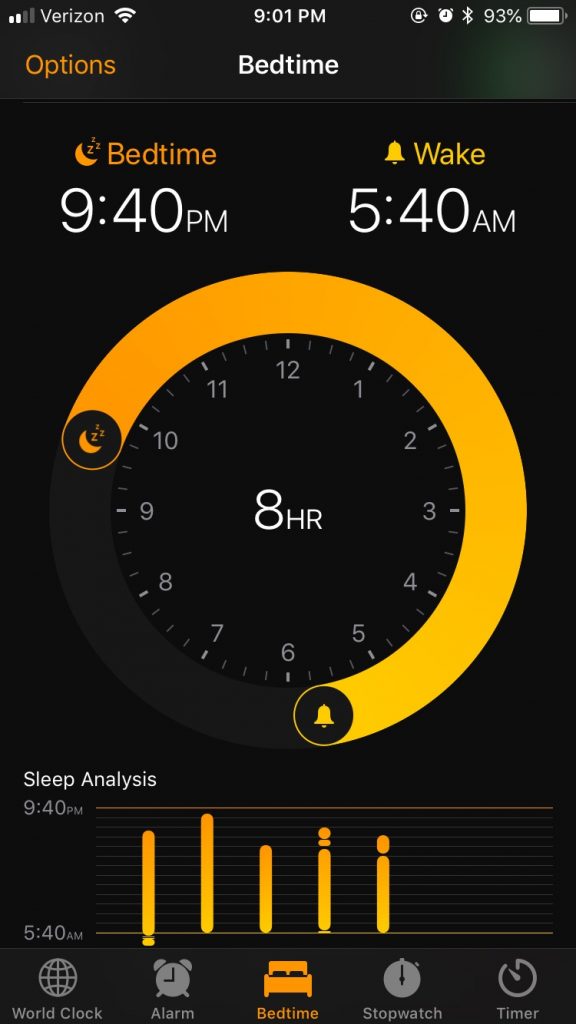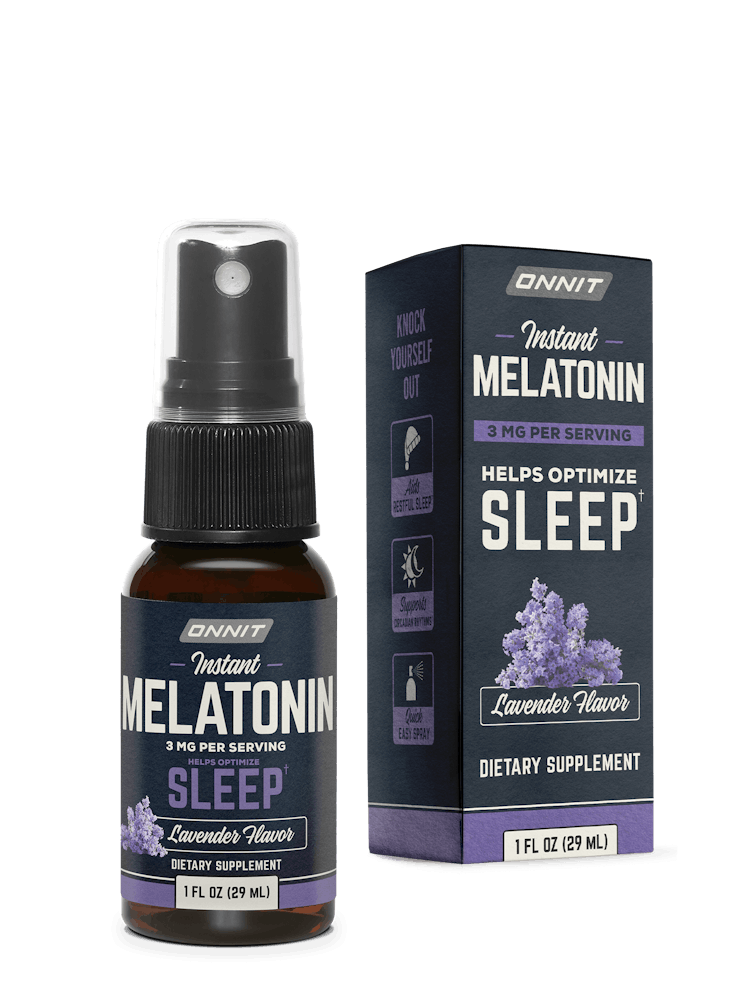6 Practical Ways to Sleep Better
Everyone knows sleep is one of the few critical body functions. It’s right up there with eating, drinking water and last but not least, breathing. Proper rest is so important, if we go without it for many days our body will force it upon us.
Yet, millions of us are sleep deprived because while we may be sleeping, we are not getting enough quality rest. Many are unaware of all the factors which can affect the quality of our sleep. Factors negatively affecting our sleep can be too much caffeine, blue light on our devices, binge watching our favorite shows, stress and more.
Low quality slumber can affect our bodies in so many ways. Proper deep rest allows the body to repair, supports the memory and information processing functions of the brain and is critical in the regulation of hormones. In fact, one night of poor rest, leads to a 15% increase in the hormone, Ghrelin, which increases hunger. Imagine this over a few days or a few weeks as and it is easy to see how less sleep could lead to weight gain!
The studies on slumber are vast, but check out “Why We Sleep” by Matthew Walker, it’s a comprehensive look into the benefits of quality sleep and the risks of ‘burning the midnight oil’.
Prioritizing quality snoozing will keep your body functioning optimally and increase your longevity – reducing the risk of cancers and other life-altering diseases (ie. diabetes, hypertension, heart disease, etc.)
So how can we set ourselves up for a successful sleep?
Glad you asked!
Feel the Better Sleep Rythm, Circadian Rhythm that is
Sync up your circadian rhythm by going to bed and waking up at the same time each day. This allows your body’s 24-hr internal clock to calibrate and ensures your body’s systems are primed for the day ahead.
To help with this process, try setting an alarm for both the time you wish to wake up as well as the time you would like to go to sleep. We find the iPhone’s native clock app to be very useful as it has a setting called “bedtime” which allows you to set alarms for both waking and sleeping. It also helps to analyze your sleep by tracking activity and the interaction with your phone in relation to when you should be asleep.

There are plenty of other sleep apps helpful for this as well. Which brings us to our next sleep strategy…
Eliminate Blue light Later in the Day
Putting down the devices an hour before bedtime dramatically increases the chances for successful sleep. Blue light puts strain on the eyes and research shows exposure to blue light reduces your body’s production of melatonin more than any other type of light. Beyond the blue light, setting your device aside prior to bed reduces the chances you encounter FOMO (Fear of Missing Out) while scrolling through your feed social feeds.
Read more about how blue light affects your sleep in this harvard study.
https://www.health.harvard.edu/staying-healthy/blue-light-has-a-dark-side
CBD Oil for Sleep
On the topic of CBD oil for sleep, it’s not that CBD helps with sleep, it’s more so CBD helps to calm us down, thus creating a more restful night. CBD oil for sleep works by interacting with our Endocannabinoid System (ECS) which then promotes relaxation. Our body is also able to get into a deeper state of rest when we’re more relaxed and therefore increasing the quality of the time we’re snoozing.
Where CBD for sleep can also be valuable is this same interaction with our ECS helps to promote both calming of anxiousness and alleviating physical pain. The ability to relieve physical pain and psychological stress are key elements to promote quality sleep.
The Third Coast team’s favorite CBD product for sleep is our hemp gummies from Tasty Hemp Oil. They contain 25mg of CBD in each gummy bear and are best taken about an hour or two before bed or before you wish to feel the effect.

To learn more about CBD oil for sleep, Joe Rogan and his guest Ben Greenfield discuss this topic further on the JRE Podcast.
Avoid Large Meals and Drinks Before Bed
Eating large meals or drinking a lot of water before bed plays a major role in our quality of sleep. Eating a full meal before bed can lead to heartburn, weight gain and even disrupt our slumber. Keeping in mind, being too hungry before bed can also have a negative impact on shuteye.
According do Amy Shapiro MS, RD, CDN, nutritionist, and founder and director of Real Nutrition, eating dinner at least 2 hours before going to bed is ideal. She also says small, snacks involving carbs, fruit or crackers can help aid in better rest. Alternatively, sugary snacks like candy, dried fruit or juice can disrupt sleep by causing a sugar crash which can wake us up.
That is a little on eating, what about drinking. It’s obvious drinking caffeine before bed isn’t ideal, but even teas or coffees with decaf in them can still contain small levels of caffeine which can keep us awake. Make sure to avoid these as well.
Water is obviously good for us, but if our goal is to drink 8 glasses per day, and we wait until 10pm to drink our last 2 glasses, needing to go to the bathroom can keep us awake. Make sure to get all of your hydration in earlier in the day so you can taper off later in the evening.
Learn more here about eating and drinking before bed…
https://thethirty.whowhatwear.com/is-it-bad-to-eat-before-bed
Breathing is Key to Sleeping Better
The quality of breath can also affect our quality of sleep. A regular supply of oxygen helps keep our tissues and cells healthy. It also helps our brain move through the various phases of sleep. If our breathing is obstructed or not deep enough, it can be difficult for our body to get enough oxygen. If our body isn’t able to get adequate oxygen, our quality of rest is diminished.
Roughly 45 million American’s are affected by sleep apnea. “Apneas” are moments during sleep where we are not breathing. They can last between 10-30 seconds and can occur hundreds of times over the course of 1 night!
If you think you may have a sleep apnea, seeing a sleep doctor would be the best place to start. If you don’t have sleep apnea, but do have trouble breathing when lying down to rest, nasal strips can help to keep your nasal passages open.
Last Ditch Effort
To be clear, we do not advocate “sleep aids.” Whether or not any so called sleep aid is actually natural, or actually non-addictive, we still think they should be avoided at all costs. That said, we totally understand there are occasional times where you may want to ensure a good nights rest, or need an assist getting your body clock back to normal. During those times, melatonin can also be helpful.
Though melatonin is natural, continued use can cause our body to stop producing its own. If you need a little boost though, we find this melatonin spray from Onnit to be very helpful.

Conclusion
The key points we highlight in this article are actionable items which take very little effort to be implemented into your life. That is, and always will be, one of our main goals at Third Coast is to educate using practical ideas.
Do you have any methods which help you sleep better? Sound off in the comments below!
